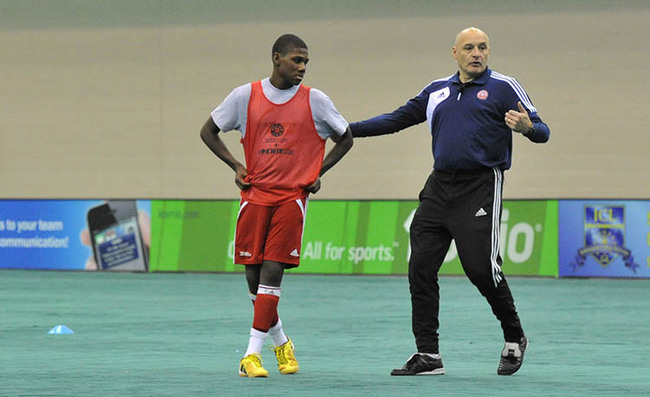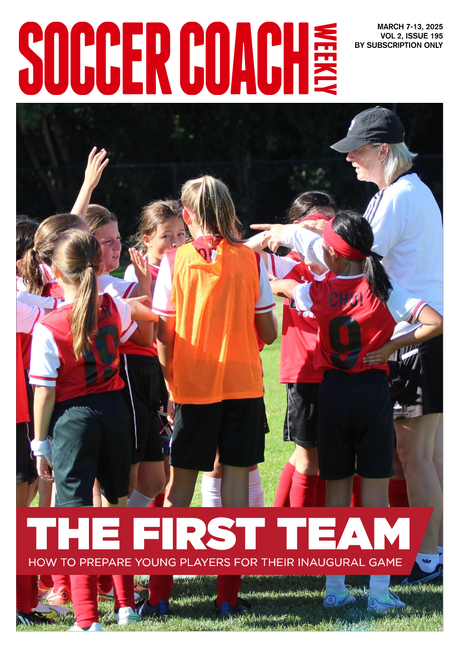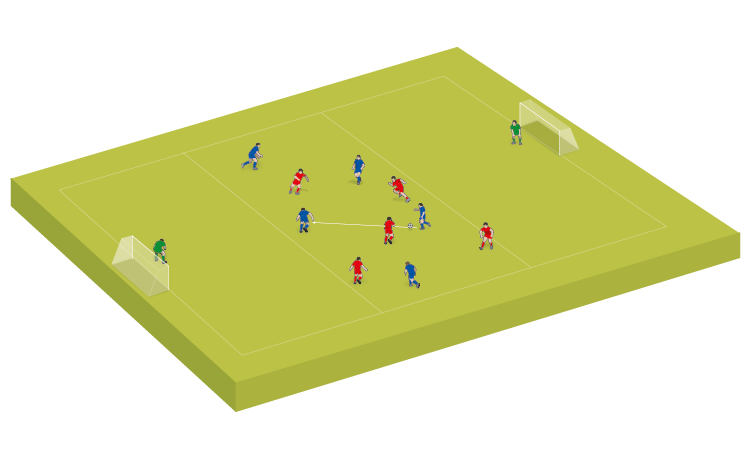The three flavours of grassroots coaches
Parents, ex-players and hired hands all have pros and cons, says Ian Barker
It is a privilege and expression of trust when parents and guardians hand us their children to develop them as young players.
Every coach should appreciate that and do our best to always honour the responsibility.
Yet, aside from the appropriate child- safety background checks, it is not a requirement for coaches in grassroots youth soccer to have any formal coach education - unlike all grassroots referees, who are required to have some basic training.
We should be strong advocates for formal coach education at every level of the game.
Consider how an individual first gets into grassroots coaching. It may be a parent is asked to coach their child and her or his teammates; it is also common that someone with a current or recent playing background will be invited to coach on the basis of their participation as an athlete. On occasion, a club may post a position vacancy open to both novice and experienced coaches.
Each of these potential paths into grassroots youth coaching have both positive and challenging aspects. And each is far more successful if pre-empted with some coach education and ongoing support.
The parent coach
This coach is a wonderful resource in grassroots youth coaching. They have a child of the age and are already committed to the schedule of games and training. They are also often a member of the community from which other families in the team are from.
However, it is a challenge for them to coach their own child while balancing the twin traps of favouritism or being extra tough on their offspring. It is also a challenge to manage expectations of other parents who can forget the unique authority of the coach.
How long should the parent-coach stay with the team? A two-season term is good for consistency and also allows for new inputs - particularly from the previous coach, if they are still within the club.
The former player coach
Personal experience of the game and the ability to demonstrate knowledge are assets. Not being directly related to any of the players is also helpful in maintaining a distinct role with all constituents.
A challenge comes when the coach lives out their playing experience vicariously through young athletes - particularly when that experience is mostly in the adult game.
"We should be advocates for formal coach education at every level..."
Also, if the coach has not been around the age group as a teacher or parent they may be unprepared for the developmental needs of youth players.
Common sense tells us typical 8-10-year- olds do not do calculus in Maths or study Shakespeare in English and yet too often in youth coaching, large tactical concepts of the 11 v 11 game are presented.
The hired/outside coach
A coach with specific experience of the age group, and who is not part of the parent cohort, brings great potential value to the club and team.
Such a coach should have experience of what is developmentally appropriate for the age and level of the team. They should also bring a good perception of impartiality in how they assess the players.
From club and team perspective, managing the loyalty of the independent coach can be a challenge. At a minimum, a handshake commitment on the part of the coach and the club as to tenure is important to establish up front.
There is no single definition of the grassroots youth coach. There are many ways to begin the journey into coaching that can be enjoyable and successful for everyone in the environment.
When clubs and teams put good thought and intention into recruitment, placement and support of coaches, it is the players who will be the greatest beneficiaries.
Related Files
Newsletter Sign Up
Coaches Testimonials

Gerald Kearney, Downtown Las Vegas Soccer Club

Paul Butler, Florida, USA

Rick Shields, Springboro, USA

Tony Green, Pierrefonds Titans, Quebec, Canada
Subscribe Today
Discover the simple way to become a more effective, more successful soccer coach
In a recent survey 89% of subscribers said Soccer Coach Weekly makes them more confident, 91% said Soccer Coach Weekly makes them a more effective coach and 93% said Soccer Coach Weekly makes them more inspired.
*includes 3 coaching manuals
Get Weekly Inspiration
All the latest techniques and approaches
Soccer Coach Weekly offers proven and easy to use soccer drills, coaching sessions, practice plans, small-sided games, warm-ups, training tips and advice.
We've been at the cutting edge of soccer coaching since we launched in 2007, creating resources for the grassroots youth coach, following best practice from around the world and insights from the professional game.







